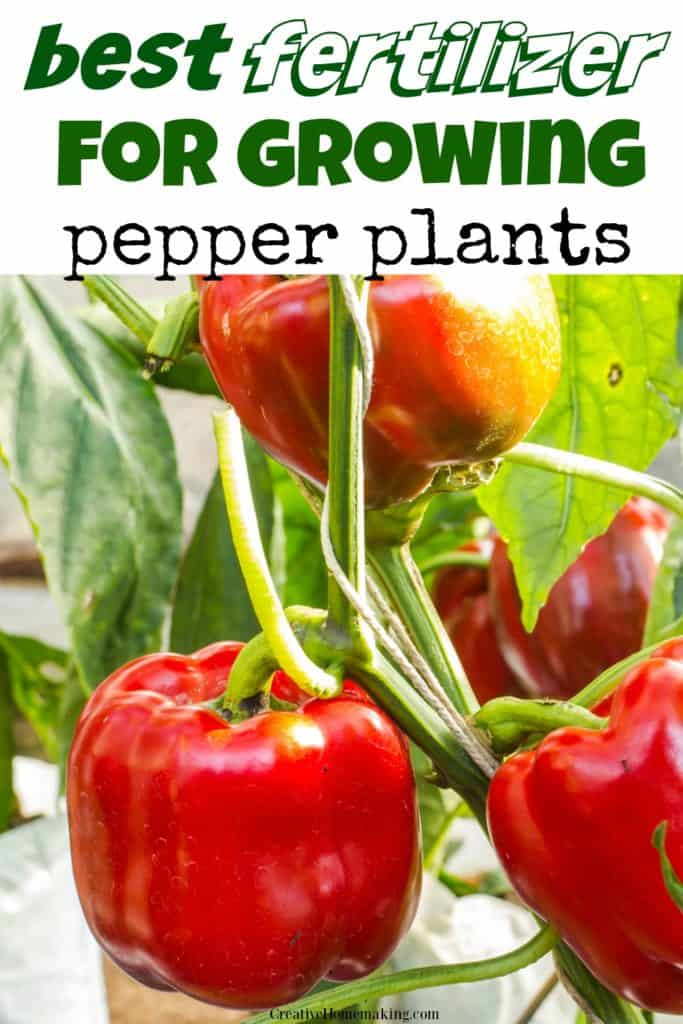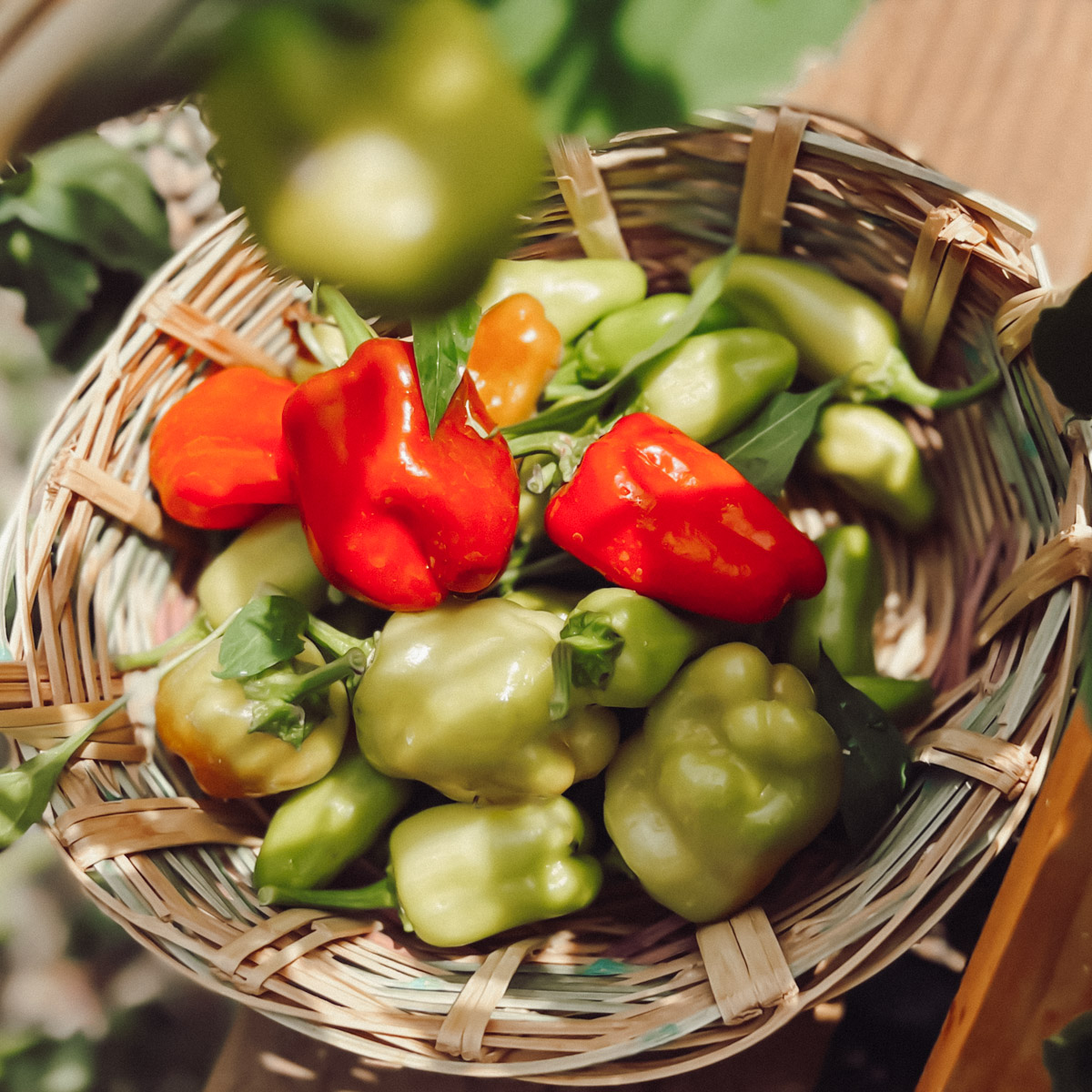Organic Vs. Synthetic Fertilizers: Which Is Best for Nurturing Healthy Pepper Plants?
In the world of nurturing healthy and balanced pepper plants, the choice between artificial and organic fertilizers stands as a pivotal choice with far-ranging effects. While both choices objective to offer vital nutrients to support plant development, the subtleties of their effect on the soil, plant health, and the setting trigger an argument that echoes throughout the horticulture neighborhood. Comprehending the distinct advantages and potential challenges of each fertilizer type is crucial for pepper growers looking for to optimize their returns while preserving an eco-conscious and sustainable technique.
Benefits of Organic Plant Foods
Organic plant foods supply an environmentally-friendly and sustainable technique to nourishing pepper plants, giving necessary nutrients without making use of artificial chemicals. These all-natural fertilizers are stemmed from organic resources such as garden compost, manure, bone dish, and algae, advertising soil health and biodiversity. Unlike artificial fertilizers, natural alternatives launch nutrients gradually, making certain a consistent and balanced supply for pepper plants to flourish.
One substantial benefit of natural plant foods is their capacity to enhance dirt framework and water retention. By improving dirt health, organic plant foods promote valuable microbial activity, which helps in nutrient uptake by pepper plants. In addition, organic fertilizers lower the risk of chemical run-off, shielding water sources from contamination and guarding the environment.
Moreover, natural fertilizers contribute to long-lasting dirt fertility by advertising the growth of valuable soil organisms. These microorganisms aid break down organic matter, releasing nutrients in a type that is conveniently obtainable to pepper plants. best fertilizers for peppers. By fostering a healthy soil ecological community, organic fertilizers support sustainable pepper cultivation practices that benefit both plants and the atmosphere
Downsides of Artificial Fertilizers
Synthetic plant foods, unlike their natural equivalents, pose various drawbacks when used to nourish pepper plants, impacting both plant health and wellness and environmental sustainability. One major drawback of synthetic fertilizers is their tendency to leach nutrients from the soil quickly. This rapid leaching can lead to nutrient imbalances in the dirt, creating plants to experience poisonings or shortages. Furthermore, synthetic fertilizers can harm helpful dirt organisms, such as earthworms and advantageous microorganisms, interfering with the soil community's balance.
In addition, the overuse of synthetic fertilizers can add to water contamination. Excess fertilizers not soaked up by plants can remove right into water bodies, causing eutrophication, where algae blooms diminish oxygen levels in the water, hurting aquatic life. Furthermore, artificial fertilizers are typically stemmed from non-renewable resources, such as nonrenewable fuel sources, adding to carbon emissions and ecological deterioration during their manufacturing.
Nutrient Absorption Contrast
When contrasting natural and artificial fertilizers in terms of nutrient absorption, organic fertilizers have the advantage of offering an extra well balanced and slow-release source of nutrients. Organic plant foods have a variety of macro and micronutrients that are not only beneficial for the plants but also promote healthy dirt microbial task, which helps in nutrient uptake.
Furthermore, organic fertilizers enhance soil structure and water retention capacity, allowing pepper plants to access nutrients much more effectively. This enhanced dirt top quality facilitates root growth, enabling better nutrient absorption. Synthetic fertilizers, although originally boosting plant development as a result of their high nutrient focus, may impede long-term nutrient absorption by derogatory soil wellness in time.
Ecological Effect Considerations

On the other hand, artificial fertilizers, although frequently more immediately readily available and concentrated to plants, can have harmful results on the atmosphere if not used appropriately (best fertilizers for peppers). Their production requires high power inputs, leading to greenhouse gas emissions and adding to climate adjustment. Additionally, the runoff of excess artificial plant foods can pollute water sources, causing eutrophication and harming marine ecological communities.
Best Plant Food Practices for Peppers
When feeding pepper plants, optimizing nutrient uptake and lessening ecological influence are key considerations. To attain this, it is necessary to check my reference comply with finest plant food techniques customized to the specific requirements of pepper plants. One vital technique is to execute a dirt examination prior to using any fertilizers. This test can identify the pH degree of the soil and determine any kind of nutrient shortages, guiding you in selecting the most appropriate plant food solution.
An additional crucial method is to fertilize pepper plants at the correct time. Usually, peppers take advantage of receiving plant food at planting and afterwards once again when they start to navigate to these guys blossom. Over-fertilizing can bring about vitamins and mineral inequalities and hurt the plants, so it is important to follow advised application prices.
Furthermore, picking a balanced fertilizer with an NPK proportion that matches pepper plants' demands is fundamental. Ultimately, incorporating organic and artificial fertilizers carefully can help nurture healthy and balanced pepper plants while lessening ecological impact.
Verdict

Organic fertilizers supply an environmentally-friendly and sustainable strategy to nourishing pepper plants, giving important nutrients without the usage of artificial chemicals. Unlike synthetic fertilizers, organic alternatives release nutrients slowly, making sure a steady and balanced supply for pepper plants to thrive.
Synthetic plant foods, in comparison to their organic counterparts, posture various drawbacks when utilized to nourish pepper plants, affecting both plant wellness navigate here and environmental sustainability. When comparing organic and synthetic plant foods in terms of nutrient absorption, organic fertilizers have the advantage of offering a much more well balanced and slow-release resource of nutrients.Furthermore, organic plant foods improve soil structure and water retention capability, allowing pepper plants to gain access to nutrients more efficiently.